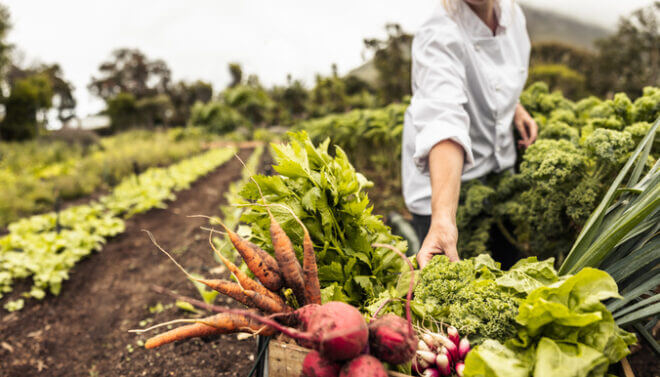Allotments have been part of British gardening culture for centuries. Every August, the nation’s gardening enthusiasts don their gloves, dust off their trowels and head down to their allotments to make magic happen with their bare hands and a collection of equipment to mark National Allotments Week. This is a whole week dedicated to the celebration of small plots of land used by individuals to grow food crops.
This year’s National Allotments Week theme is nature – specifically, the importance of gardening with nature in mind. It’s an opportunity to bring gardening into the spotlight and to support ecosystem processes – the physical, chemical and biological processes that link organisms and their environment, like pollination. It’s also a great chance to create and nurture a haven for wildlife in urban areas.
Following its inception in 2002, National Allotments Week is thriving. Can allotments help us lead healthier, more environmentally friendly lifestyles? Of course they can. By growing our own food, we’re consuming products with reduced carbon footprint and minimal chemicals. Allotments are also brilliant socially, helping people develop friendships and strengthening communities. And we know how good it is for our overall wellbeing, to be outside in the fresh air, instead of being indoors and glued to screens.
National Allotments Week – how it all began
The history of allotments dates back to Anglo-Saxon times. They say that in the nineteenth century, landowners gave the working class pieces of land to produce their own food. Industrialization and lack of a welfare state meant that allotments became invaluable and in 1908, the Small Holdings and Allotments Act came into effect. After World War I, the Land Settlement Act helped returning servicemen and the Allotments Acts of 1922 strengthened the rights of allotment holders in England and Wales.
Sam’s allotment project
Allotments are in the spotlight, and the Quattro Foods team is not missing a trick. Our very own Sam Brower has been beavering away in her garden (not an allotment, but she’s working on the same principle that growing your own food is sustainable, economical and healthy). She’s been growing mountains of potatoes (keep an eye out for our next blog which explores this hobby in more detail) and almost everything else you can imagine.
Here’s Sam’s allotment menu:
- Herbs
- Potatoes
- Salad leaves
- Spinach
- Tomatoes
- Cucumbers
- Squash
- Courgettes
- Patty pans
- Leeks
- Mange tout
- Sugar snaps
- Peas
- Runner beans
- Borlotti beans
- French cosse beans
- Dwarf green beans
- Onions
- Garlic
- Spring onions
- Shallots
- Carrots
- Swede
- Beetroot
- Turnips
- Kale
- Cabbage
- Cauliflower
- Broccoli
- Aubergines
- Chillies
- Peppers
- Kiwis
- Strawberries
- Raspberries
- Blackcurrants
- Gooseberries
- Apples
- Pears
- Apricots
- Rhubarb
- Cherries
- Plums
- Tayberries
It’s a busy time in Sam’s garden, and she seems to spend most evenings and weekends making jam, pickles, compotes, soups, herb elixirs and lots of scrumptious meals. The fridge is stuffed to bursting!
The rest of us are lucky enough to taste samples of her home-grown fare in the office, while we all enjoy celebrating National Allotments Week to the max!

